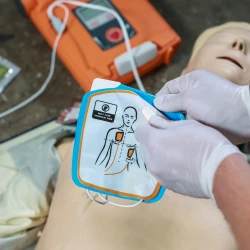The American Heart Association (AHA) has developed a wide variety of training and education programs designed to improve the care of patients, especially during emergency situations. One such program is the Pediatric Emergency Assessment, Recognition, and Stabilization (PEARS) class. This class is particularly valuable for healthcare professionals who provide medical care for infants and children, teaching them the critical skills required to recognize respiratory and cardiac emergencies, shock, and other pediatric crises.
Introduction to PEARS
PEARS is designed to help healthcare professionals develop the skills necessary to effectively recognize and manage an ill or injured child during the golden minutes until emergency medical services (EMS) arrive. This class addresses key areas in pediatric care, such as:
- Systematic Assessment: Teaching the unique AHA systematic approach to pediatric assessment.
- Respiratory Management: Understanding how to manage both basic and advanced respiratory problems.
- Circulatory Management: Providing insight into the management of shock, cardiac arrest, and arrhythmias.
- Team Dynamics: Teaching the principles of effective communication and team interaction to enhance patient outcomes.
Target Audience
PEARS is suitable for any healthcare provider who may encounter pediatric emergencies, including but not limited to:
- Nurses
- Physicians
- Paramedics
- Respiratory Therapists
- School and Pre-school Healthcare Staff
Course Structure and Content
Pre-Course Requirements
PEARS candidates must have a basic understanding of child and infant CPR as a prerequisite. Some institutions, like the Life Safety Institute, provide additional support or resources to ensure candidates are well-prepared.
Course Content
The course typically includes:
- Video-Driven Lessons: Video simulations depicting pediatric emergencies to facilitate understanding and learning.
- Hands-On Skills Practice: Under the guidance of certified instructors, students practice essential skills in real-life scenarios.
- Written and Skills Examinations: Students are evaluated through both written and practical examinations to ensure understanding and competence.
Course Duration
PEARS usually takes around one day to complete, but this can vary depending on the institution and specific needs of the students.
Certification
Upon successful completion, participants receive a PEARS course completion card, which is valid for two years.
Importance of PEARS in Pediatric Care
PEARS is more than a class; it's a vital tool in improving pediatric emergency care. The ability to recognize and adequately manage the early stages of pediatric emergencies can often make a life-saving difference.
- Enhancing Skill Sets: Offers healthcare professionals the ability to hone their skills in pediatric emergency care.
- Improving Outcomes: Ensures that children in emergency situations receive timely and appropriate care.
- Promoting Teamwork: Encourages collaborative efforts in managing pediatric patients effectively.
Conclusion
The AHA's PEARS class has become a crucial part of pediatric emergency education. By providing a structured framework and a set of practical tools, PEARS ensures that healthcare providers are well-equipped to manage pediatric emergencies with confidence and competence.
Whether at a hospital or specialized training institute like the Life Safety Institute, PEARS training is essential for anyone involved in pediatric care, reaffirming the commitment to providing quality care for our youngest patients.




